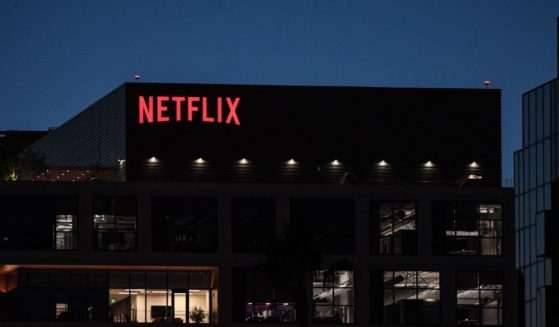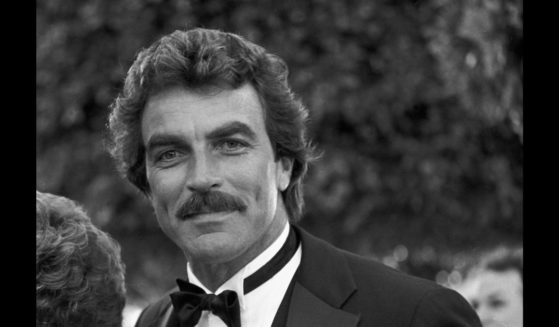Biden Makes Stupidest 'First Day in Office' Promise Ever
Does Joe Biden really want to co-sign the World Health Organization’s lies?
The answer is “yes,” judging by the messaging coming out of the Biden campaign, at least now that big news of the week is bound to be President Donald Trump’s administration’s decision to withdraw the United States from the World Health Organization.
A report from Fox News on Tuesday confirmed that the administration had informed the United Nations of its decision to withdraw from the global health organization, in July of 2021.
The move wasn’t exactly a surprise; the administration had, for weeks, been attacking the group for its handling of the pandemic and a perceived pro-China bias.
In fact, Trump had more or less already announced the dissolution of America’s bonds with the organization:
“Because they have failed to make the requested and greatly needed reforms, we will be today terminating our relationship with the World Health Organization and redirecting those funds to other worldwide and deserving, urgent global public health needs,” Trump told reporters during a May 29 event at the White House, according to a White House transcript.
“We have detailed the reforms that it must make and engaged with them directly, but they have refused to act,” Trump said.
However, the administration’s decision to notify Congress and the U.N. was an opportunity for Democrats to be outraged anew:
Congress received notification that POTUS officially withdrew the U.S. from the @WHO in the midst of a pandemic.
To call Trump’s response to COVID chaotic & incoherent doesn’t do it justice. This won’t protect American lives or interests—it leaves Americans sick & America alone.
— Senator Bob Menendez (@SenatorMenendez) July 7, 2020
The President’s official withdrawal of the U.S. from the World Health Organization is an act of true senselessness as @WHO coordinates the global fight against COVID-19. With millions of lives at risk, the President is crippling the international effort to defeat the virus.
— Nancy Pelosi (@SpeakerPelosi) July 7, 2020
That’s New Jersey Democratic Sen. Robert Menendez and House Speaker Nancy Pelosi decrying President Trump’s decision to leave the WHO as an act that “leaves Americans sick & America alone” and “is crippling the international effort to defeat the virus.”
One expects that kind of rhetoric from the speaker and the ranking member of the Senate Foreign Affairs Committee. They’re both from safe seats and don’t particularly need to hedge their speech to play for votes. (Menendez won re-election in deep-blue New Jersey in 2018 even after a mistrial on seamy corruption charges that were originally brought by federal prosecutors during the Obama administration.)
Former Vice President Joe Biden? As a man trying to convince Americans to elect him to the White House in November, he might want to be more careful. He wasn’t.
Americans are safer when America is engaged in strengthening global health. On my first day as President, I will rejoin the @WHO and restore our leadership on the world stage. https://t.co/8uazVIgPZB
— Joe Biden (@JoeBiden) July 7, 2020
Notice that Biden doesn’t even bother to defend the WHO here. Instead, he merely says that we’re “safer when America is engaged in strengthening global health.” The assumption that undergirds all of this — I would argue falsely — is the idea that the WHO as currently constituted can strengthen global health and that the United States is better off cooperating with a flawed organization than going it on our own.
Now, to be fair, most of what can be done on the first day of a presidency is only limited by the amount of messaging you can cram into a busy news cycle via executive orders. It’s supposed to set the tone for the next four years to come. The rest is saved for the symbolic first 100 days.
For instance, on Trump’s first day in office, he signed executive orders freezing new government regulations and ordering federal agencies to roll back Obamacare provisions. Both made good on major campaign promises.
Former President Obama, meanwhile, signed orders aimed at prohibiting administration advisers from exiting directly from government to lobbying and freezing the salaries of White House employees. The former was a major campaign promise, the latter a symbolic move amid the financial crisis of 2008-2009.
If he gets a “first day as President,” Joe Biden has signaled he’ll sign us back on with an organization that published this Twitter post in January:
Preliminary investigations conducted by the Chinese authorities have found no clear evidence of human-to-human transmission of the novel #coronavirus (2019-nCoV) identified in #Wuhan, #China??. pic.twitter.com/Fnl5P877VG
— World Health Organization (WHO) (@WHO) January 14, 2020
While COVID-related executive orders would no doubt be among Biden’s first-day priorities if he’s elected, signing back on with the WHO — an organization that praised China effusively and avouched for its word during the early days of the coronavirus pandemic — is indicative of what Biden’s priorities are.
China lied about how early it knew about the novel coronavirus and the extent of it, silenced doctors and others who talked about it, attempted to control it with draconian measures and lied about its numbers.
And, at every stage of the process, the WHO played right along. They weren’t ignorant, either. The Associated Press reported last month that “WHO officials were lauding China in public because they wanted to coax more information out of the government” but that “[p]rivately, they complained in meetings the week of Jan. 6 that China was not sharing enough data to assess how effectively the virus spread between people or what risk it posed to the rest of the world, costing valuable time “
One of Joe Biden’s very first priorities would be to rejoin this august group — a group which we provide exactly one-fifth of every dollar — 10 times more than China provides, according to Fox New. Yet WHO is curiously deferential to Beijing.
Do voters share Biden’s priorities? It depends on which metric you look at — and what President Trump does about it.
In terms of leaving the WHO, to the extent voters have an opinion, at least one poll indicated they opposed it. An internet-based survey of 1,500 respondents conducted between May 29 and June 2 by The Economist and YouGov, released on June 4 and conducted between May 31 and June 2, found that 46 percent somewhat or strongly disagreed with the decision, compared with 33 percent who somewhat or strongly agreed with it. (The poll’s 3.2 percent margin of error wouldn’t significantly affect the conclusion that idea is more unpopular than not.)
Perhaps most importantly, however, 22 percent weren’t sure.
However, that’s apparently because most Americans trust the WHO as an organization. A week later, a Pew Research Center released a poll that showed 51 percent of U.S. adults felt the WHO’s response to the coronavirus was only fair or poor, compared with 46 percent who said it was good or excellent. (Again, the margin of error of 1.4 percent doesn’t significantly change the outcome.)
The poll, conducted via a web-based survey of 10,957 U.S. adults, unsurprisingly found that response was drawn along partisan lines, with 70 percent of Republicans disapproving compared with 62 percent of Democrats who approved.
The major takeaway from Wednesday’s decision to put the World Health Organization on notice is that Trump plans to make it an issue going forward in the campaign — and this scanty body of polling will fill itself out nicely before November, probably not to the advantage of Joe Biden. All President Trump has to do is go back to the WHO’s messaging on the coronavirus, which has been an effective tactic in the past.
On Wednesday, according to the AP, the State Department said it would continue to work with the WHO in order to reform the body. However, it pointed reporters toward this quote by President Trump: “I’m not reconsidering, unless they get their act together, and I’m not sure they can at this point.”
Between now and the first Tuesday in November, the Trump campaign is going to be contrasting that statement with Biden’s tweet. It’s also going to make plenty of hay regarding the WHO’s dismal record when it comes to the coronavirus.
If Joe Biden thinks this is something that’s worth doing on the first day in office, wait until voters hear about those priorities.
Truth and Accuracy
We are committed to truth and accuracy in all of our journalism. Read our editorial standards.












